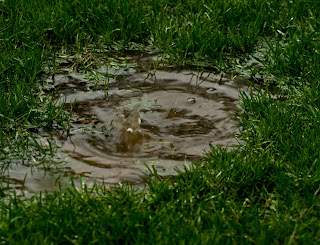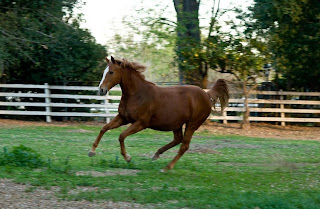By Vichara

A typical brain contains about 100 billion neurons, consumes a quarter of the body’s oxygen and spends most of the body’s calories even though it only weighs about three pounds. For something so little it uses a lot doesn’t it? The question is are you getting your money’s worth. Are you engaging your brain enough besides the general YouTubing, texting while walking and indulging in watching endless hours of American Idol auditions? Sure you need a perceived balance to justify and believe you need these activities but are you reaching out and stretching the capabilities of this 3-pound wonder? Are you pushing little guy into warp drive? We are all guilty of not pushing our super computers enough but we could all do better. Take a flashlight of curiosity and investigation and give the grey matter a little more of a workout with something new. Light up a path of new knowledge and wonder and get those neurons all fired up!
yellow-dog • \yel-oh-DAWG\ • adjective
1 : mean, contemptible
*2 : of or relating to opposition to trade unionism or a labor union
Example Sentence:
The workers were all bound under yellow-dog agreements, so they weren't able to appeal to any union forces to help renegotiate their contract.
Did you know?
In the 19th century, the noun "yellow dog" developed a derogatory sense, meaning a low, despicable person. This usage probably came about from the traditional association of the color yellow with cowardice. Just before the turn of the century, "yellow-dog" started to be used by writers who were derogatorily describing organizations that expressed opposition to trade unions. The popularized term "yellow-dog contract" referred to an agreement made by an employer and employee in which the employee agrees not to join a labor union during the time he or she is employed. While such contracts proliferated in the 1920s, they were later made unenforceable in U.S. federal courts under the Norris-LaGuardia Act (1932).

By Vichara

Today’s “thought” is presented in 3D! There is no special apparatus you need. No new technology, in fact you will be using a very old technology. As you read this take moments to turn your gaze out the window, across the room and to the people you are with. You see how amazing it is, it’s really life-like. You can almost reach out and touch everything, in fact you can! This is not just some projected illusionary world it is yours and it is real. There is no DVR reverse or pause, this is real time, real life and real emotions. As you step out in this amazing 3D world created for you take every opportunity to reach out and connect with the world. Don’t sequester yourself completely behind that Blackberry, laptop screen or TV. There is an amazing production going on all around you and it will never happen again. This is yours…don’t miss out.
maxixe • \muh-SHEESH\ • noun
: a ballroom dance of Brazilian origin that resembles the two-step
Example Sentence:
"In the 1920s, the maxixe took over the ballrooms of Rio de Janeiro." (The Toronto Star, September 20, 1998)
Did you know?
The maxixe was in vogue for only a few decades in the late 19th and early 20th centuries, but its influence has lived on in the still-popular samba. Born out of the marriage of Afro-Brazilian and European dance, maxixe is sometimes described as Africanized polka. Both Brazilian music and the tunes of Tin Pan Alley accompanied the dancers of the maxixe, which was brighter and snappier than the also then-popular Argentine tango. The maxixe in some ways put Brazil on the dancing map. As Sanjoy Roy put it in a July 7, 2006 article in The Guardian, "The maxixe was one of Brazil's first musical exports, spawning brief crazes in Paris in 1914, and London in 1922."

By Vichara

We sometimes feel that the groove / path that we are on is present enough for us to acknowledge and react to the subtleties that are always swimming next to us. While it is wise and imperative to retain this confidence it is also imperative to never assume this is always the case. It is advisable to allow those moments in a day where we can steal some time, to breathe and engage and to check in with all of the subtleties that constantly surround us. We should assess if the direction that you and those around you has a foundation of patience, compassion and love. I know it does sound cliché and like a Hallmark greeting card but retaining this foundation and building all of our actions with this foundation will only enable those around you and yourself to be engaged, connected and fulfilled.
martinet • \mar-tuh-NET\ • noun
1 : a strict disciplinarian
*2 : a person who stresses a rigid adherence to the details of forms and methods
Example Sentence:
Spencer complained that his office manager was a power-hungry martinet who compelled him to follow ridiculous rules.
Did you know?
When France's King Louis XIV appointed Lieutenant Colonel Jean Martinet to be inspector general of the infantry in the late 17th century, he made a wise choice. As a drillmaster, Martinet trained his troops to advance into battle in precise linear formations and to fire in volleys only upon command, thus making the most effective use of inaccurate muskets -- and making the French army one of the best on the continent. He also gave English a new word. "Martinet" has been used synonymously with "strict disciplinarian" since the 1730s.

By Vichara

Everyone is scared. No matter how much confidence one shows. No matter what bravado is brandished about in order to retain some alpha-male or alpha-female position, they are all scared…just like you. IN our working pods of life there will always be those individuals that will be compelled to be in control in varying degrees of success. It is unfortunate for those individuals that are in control fail to recognize the basic commonalities that we all share and work from a position of frenetic unfocused degrees. With these somewhat ingrained methods it is difficult to change with force from the outside. One of the keys is for us all is to step back, recognize fears (which by the way are mostly based in our impermanence) and attempt to make that connection based in calm understanding & compassion and find answers together. Calm rivers carry great weight and strength without constant churning.
bolide • \BOH-lyde\ • noun
: a large meteor : fireball; especially : one that explodes
Example Sentence:
Though probably no more than a foot in diameter, the bolide offered a brief and spectacular light show as it streaked across the sky.
Did you know?
"Bolide," like "fireball," is a name applied to very bright meteors that often trail sparks. A clue to the origins of "bolide" can be found in the missile-like appearance of these meteors. The Greek "bolis," which comes from "bolē" ("throw" or "stroke"), literally means "missile" or "javelin." "Bolis" is the source of the Latin name given to these spectacular meteors, which is also "bolis." The word became "bolide" in French, from which it was borrowed by the English language in the mid-19th century.

By Vichara

You are probably not going to like this at all. Besides being Monday there is something else that you need to be concerned about that is very important. I’m not sure how to broach this and I’m not even sure I should. Perhaps in exposing this it could have a reaction in you and others and create a profound change. Ok, after all I have a responsibility to pass this that is given to me and let you judge. “So you breathe, so you live. So you create and from creation come inspiration. From inspiration is the spark you will share and help those around you.” Each and every one of us has this ability and it is stirring as you read this. Do not discount or diminish this ability because it has the power to transform even the smallest way. This ability to give and receive compassion is the key to unlocking the channels of perception. As when these are open the unification of the spirit we share grows stronger, you heart opens more and we transcend the disruptive and useless pettiness we encounter. Breathe and ignite this spark.
Valhalla • \val-HAL-uh\ • noun
1 : the great hall in Norse mythology where the souls of heroes slain in battle are received
*2 : a place of honor, glory, or happiness : heaven
Example Sentence:
"When the time comes, a lot of folks who vote people into baseball's Valhalla will make character a major qualification." (Sid Dorfman, The Star-Ledger [Newark, New Jersey], September 9, 2009)
Did you know?
In Norse mythology, the souls of warriors who died nobly in battle were brought to a magnificent palace, where they spent their days fighting for diversion, immune from lasting injury, and their evenings lustily feasting on freshly killed boar and quaffing the free-flowing mead. In Old Norse, the word for this warrior heaven is "Valhǫll" (literally, "hall of the slain"); in German, it is "Walhalla." English speakers picked up the name as "Valhalla" in the 18th century. Nowadays, we can use the word figuratively, and induction or admission into a modern-day Valhalla doesn't require passing from this life. It can be a place of honor (a hall of fame, for example) or a place of bliss (as in "an ice cream lover's Valhalla").

By Vichara

Sometimes leaving your mark in this world is a simple as saying “hello”. For some of us who live in places where we encounter hundreds of people in a day we, for the most part, never push outside our comfortable circles of people we deal with on a day-by-day basis. From entrenching ourselves in these routines and familiar encounters we will sometimes feel awkward with new faces and voices. Over time with this routine our ability to step out will become more and more uncomfortable and possibly debilitating. Here of course is the point of realization. While we are here in our entrenchment the person across from you, entering the same elevator or standing in the same line could be exactly where you are. In a comfortable way find the “bridge” and say hello. I’m not advocating forcing an immediate friendship on the spot just give a friendly hello. With this acknowledgement it recognizes the existence of another human being, just like you and you leave your mark by this simple act of kindness.
Mrs. Grundy • \MISS-uz-GRUN-dee\ • noun
: one marked by prudish conventionality in personal conduct
Example Sentence:
After a barrage of complaints from Mrs. Grundys, the Web site's managers decided to remove the "objectionable" photos.
Did you know?
"What would Mrs. Grundy say?" Dame Ashfield, a character in Thomas Morton's 1798 play Speed the Plough, was continually asking that question and worrying about invoking the sneering condemnation of her prudish neighbor, Mrs. Grundy. Although Mrs. Grundy never actually appeared on stage during the play, her critical attitude exerted a significant influence on the actions of other characters, and ultimately on the English language. By 1813, English speakers had adopted her name as a byword for anyone with extremely rigid standards of propriety that he or she applied in judging the actions of others.

By Vichara

It’s one thing to acknowledge another one’s existence on the external level without too much fanfare; it is acknowledge that person’s internal existence without judgment is where the challenge exists. The physical form is just a collection of bones, skin and blood adorned with fabrics but what that person believes in, dreams about and feel can seem as vast and large as looking out into the ocean. Some things people believe in we will not totally understand because each of our personal experiences and how they are personally interpret them. But here is the tripping point and if we stop, listen and try to understand we can find the commonalities that we could share. From there will be a starting point that will ignite the conversation not to argument and disagreement but to understanding and compassion.
colubrine • \KAHL-yuh-bryne\ • adjective
*1 : of, relating to, or resembling a snake
2 : of or relating to a large cosmopolitan family (Colubridae) of chiefly nonvenomous snakes
Example Sentence:
"By the time the music starts throbbing at 9, there will undoubtedly be a colubrine line slithering down Mass. Ave." (Christopher Muther, The Boston Globe, March 2002)
Did you know?
"Colubrine" may be less common than other animal words, such as "canine," "feline," and "bovine," but it has been around for a good long while. Ultimately derived from the Latin "colubra" ("snake"), it slithered into the English language in the 16th century. ("Cobra," by the way, comes from the same Latin word, but entered English through Portuguese.) Some other words for "snakelike" are "serpentine" (a more common alternative) and "ophidian" (from the Greek word for snake: "ophis").

By Vichara

We are desire or should I say we all seem to need empirical proof of some guiding hand or deity where we can possibly find solace or guidance. Some believe that the indication of something bigger than us will come with much fanfare. With others there is no waiting and all the proof we need is here already. Hell, for me I was kind of hoping in a simplistic way that the treasured wind chimes that belonged to my deceased mother that now hangs just outside the window of my “sitting” room would chime, letting me know that she is “out there” and watching over me. Maybe there is nothing out there. Perhaps it is so subtle that we can’t see or feel it. Then again maybe its strength is in the subtlety and transparence. I think that it is not in any of these and the true guidance is in each one of us but unless we use the tool of compassion to unite we may never see the full potential. Oh and by the way as I writing this, the wind chimes did ring for a moment.
Augean stable • \aw-JEE-un-STAY-bul\ • noun
: a condition or place marked by great accumulation of filth or corruption
Example Sentence:
The presidency of Ulysses S. Grant was marred by his refusal to clean out the Augean stables of his own administration.
Did you know?
"Augean stable" most often appears in the phrase "clean the Augean stable," which usually means "clear away corruption" or "perform a large and unpleasant task that has long called for attention." Augeas, the mythical king of Elis, kept great stables that held 3,000 oxen and had not been cleaned for thirty years -- until Hercules was assigned the job. Hercules accomplished this task by causing two rivers to run through the stables. The word "Augean" is sometimes used by itself, too -- it has come to mean "extremely difficult and usually distasteful." We can refer to "Augean tasks," "Augean labor," or even "Augean clutter."

By Vichara

Keep your eyes & ears open as much as you can folks because what you see and hear in this second, this minute, this hour will never, ever happen again…ever. It is just part of he wonderful kaleidoscopic ephemeral universe that we all and I mean all, live in. At the core and the key to all of this and the basic element is to be cognizant of this with the simple act of mindfulness with each minute and hour. I know, I know easier said than done right? But even driving we can practice mindfulness and try to arrive peacefully. The wonderful meditation teacher Thich Nhat Hanah suggests that even at a red light we can practice. The red light can be used as a signal, a reminder that there is tension in your body from possibly needing to get somewhere. Use the 10 seconds at the red light to practice some mindful breathing and release the tension in your body. And with the number of red lights we face we might even arrive peacefully.
conquian • \KONK-ee-un\ • adjective
: a card game for two played with 40 cards from which all games of rummy developed
Example Sentence:
The two friends whiled away the long summer days with endless games of conquian.
Did you know?
Conquian is a very old card game, played more frequently in the past than now. Based on the "draw and discard" principle that forms the basis for all modern games of rummy, it's played with 40 cards of a 52-card deck. (The most common variations involve the removal of either all face cards, or the tens, nines, and eights.) The goal of the game is to form three or four of a kind, or sequences. "Conquian" comes to us from Mexican Spanish, but the word is ultimately derived from the Spanish "¿con quién?" meaning "with whom?"

By Vichara

Is there enough resilience in your heart to withstand all that it confronts in a day or in a lifetime? I do believe there is but it is not solely contained in your individual self but in the communion with others. It can be found in that endless reservoir of faith that binds us all at the most primal level. Once we have trouble achieving understanding and reliance solely on our own these untapped resources will kick in and become a reliable source of strength. Because it is only in recognizing the commonalities that we all share, no matter where we live, that we can then form a more unified fulfilling union.
noetic • \noh-ET-ik\ • adjective
: of, relating to, or based on the intellect
Example Sentence:
Among the events sponsored by the neighborhood bar were monthly quiz nights, which Jeanne enjoyed attending because they satisfied her thirst for noetic stimulation.
Did you know?
"Noetic" derives from the Greek adjective "noētikos," meaning "intellectual," from the verb "noein" ("to think") and ultimately from the noun "nous," meaning "mind." ("Nous" also gave English the word "paranoia" by joining with a prefix meaning "faulty" or "abnormal.") "Noetic" is related to "noesis," a rare noun that turns up in the field of philosophy and refers to the action of perceiving or thinking. The most notable use of "noetic" might be in the name of the Institute of Noetic Sciences, a research organization based in California that is devoted to studies of consciousness and the mind.

By Vichara

You’re not pedaling fast enough! You’ll never get there like that! You need to keep up, push harder! But to where and from what starting point? Unless there is an understanding, the demarcation point and the desired goal even if it is a scratch, you will never have a clear vision of how to get there. While there is merit with planning and there are advantages in being malleable in the execution I do believe that no matter how you get there and the means you use to get there it is important to be guided by a tracking system of beliefs. A moral GPS that when confronted by a twist or a turn on the road it will safely guide you through the possible difficulties of the life terrain. However remember when you install your moral GPS system make sure that you leave room for “upgrades” that will allow for improvements in guidance from new sources. It is with enhancements that you will surely get “there” guided by the compass of truth.
incoherent • \in-koh-HEER-unt\ • adjective
1 a : lacking coherence: as b : lacking cohesion : loose * c : lacking orderly continuity, arrangement, or relevance : inconsistent d : lacking normal clarity or intelligibility in speech or thought
Example Sentence:
I found myself unable to follow the movie’s rambling and incoherent plot.
Did you know?
Something that is coherent holds or sticks together firmly, with resistance to separation (that is, it coheres). “Coherent,” ultimately from the Latin “co-” (“together”) and “haerēre” (“to stick or cling”), entered English in the 16th century and almost from the beginning was used both of physical things (“coherent stone”) and of things which hold together in a much less palpable way (“coherent thoughts”). Its antonym, “incoherent,” entered the language about three-quarters of a century later. Like “coherent,” “incoherent” can be applied to both the tangible and the intangible. But, whether we are speaking of sand or logic, all things incoherent have one thing in common: they do not hold together, literally or figuratively, in a unified or intelligible whole.

By Vichara

Don’t let your search for meaning rob your life of meaning.
doldrums • \DOHL-drumz\ • noun
1 : a spell of listlessness or despondency
2 often capitalized : a part of the ocean near the equator abounding in calms, squalls, and light shifting winds
3 : a state or period of inactivity, stagnation, or slump
Example Sentence:
"A vacation on a tropical island could be just the thing you need to fight against the winter doldrums," said Christine as she handed me the resort's brochure.
Did you know?
Everyone gets the doldrums -- a feeling of low spirits and lack of energy -- every once in a while. The doldrums experienced by sailors, however, are usually of a different variety. In the mid-19th century, the word once reserved for a feeling of despondency came to be applied to certain tropical regions of the ocean marked by the absence of strong winds. Sailing vessels, reliant on wind propulsion, struggled to make headway in these regions, leading to long, arduous journeys. The exact etymology of "doldrums" is not certain, though it is believed to be related to the Old English "dol," meaning "foolish" -- a history it shares with our adjective "dull."

By Vichara

There will be some things in life that will loose their charm. Remember your first bike? The one that you begged your parents to get you for days? The one with the fancy seat and all of the gears? There was a great deal of excitement for some quite some time after you received it. You took good care of it, cleaned it and made sure the tire pressure was right and avoided bumps and glass. Then after many months later, possibly a year when the scratches and dings just became part of the bike it sort of just transformed form this shiny cool vehicle to just vital means of transport to get you from here to there. Things change, they transform but what we sometimes fail to see is that even though they transform there is still value there. In fact some increase in value like the relationships we have with friends and whom we are married to. As like the bike that transforms so do our relationships but don’t lose sight of the vital essence that still exist in all of them and the value they hold, even with time.
triskaidekaphobia • \triss-kye-dek-uh-FOH-bee-uh\ • noun
: fear of the number 13
Example Sentence:
"Billy Hart suffers absolutely no triskaidekaphobia. The Salem Avalanche infielder has worn No. 13 for six years…." (Katrina Waugh, The Roanoke Times [Virginia], July 14, 2007)
Did you know?
It's impossible to say just how or when the number thirteen got its bad reputation. There are a number of theories, of course. Some say it comes from the Last Supper because Jesus was betrayed afterwards by one among the thirteen present. Others trace the source of the superstition back to ancient Hindu beliefs or Norse mythology. But if written references are any indication, the phenomenon isn't all that old (at least, not among English speakers). Known mention of fear of thirteen in print dates back only to the late 1800s. By circa 1911, however, it was prevalent enough to merit a name, which was formed by attaching the Greek word for "thirteen" -- "treiskaideka" (dropping that first "e") -- to "phobia" ("fear of").

By Vichara

I traded in a cigarette for a pencil. It has been 10 years, in fact new years when 99 turned to 00. This was not a relinquishment out of some resolution promise but out of a new years visit to the local emergency ward for a respiration / flu situation. Not something I recommend for a new years activity. Regardless there I was coughing and heavy in the chest without a constant ignited companion stuck between the index and middle finger of my right hand. The emergency doctor made the call and recommended in no uncertain terms that my current friendship with this smoking friend of mine would not be a good to continue. We parted ways somewhat reluctantly but with no hard feelings. However there was a lonely void in my right hand that needed to be filled but who could fill this place? Then before could say “there you go and Bob’s your uncle” a #2 HB pencil slipped snuggly into this spot and I started writing. Perhaps you may be familiar with some of my works like “War And Sometimes Peace”, “The Grapes Of Ruth”, “Great Expectorants” or “For Whom The Ding Dong Rings For” or maybe it’s just these “thoughts”. If it is thanks for reading these and hopefully you’ll check back.
suborn • \suh-BORN\ • verb
*1 : to induce secretly to do an unlawful thing
2 : to induce to commit perjury; also : to obtain (perjured testimony) from a witness
Example Sentence:
"In the first place, a jury could not easily be suborned by any one." (Theodore Dreiser, The Financier)
Did you know?
The Latin word that gave us "suborn" in the early part of the 16th century is "subornare," which translates literally as "to secretly furnish or equip." The "sub-" that brings the "secretly" meaning to "subornare" more commonly means "under" or "below," but it has its stealthy denotation in the etymologies of several other English words, including "surreptitious" (from "sub-" and "rapere," meaning "to seize") and the verb "suspect" (from "sub-" or "sus-" and "specere," meaning "to look at"). The "ornare" of "subornare" is also at work in the words "ornate," "adorn," and "ornament."

By Vichara

Sometimes we may sit and wonder if this, you know the life we have had so far, if this is it? Is what we see and hear and feel the rewards of this life? I think we sometimes try to quantify things beyond reason. We try to measure our life sometimes with the grand spectacles of what we see on TV and movies. The lavish happy endings with shiny things and a sweeping measure of orchestral music to accompany and underscore as the credits roll. But of course we know that this is not reality, at least for most of us. I believe because of this disillusioned vision we have been subjected to we sometimes miss out on the real rewards, the ones that can be so subtle we may miss them. For me at least I had one yesterday by seeing two Red-Whiskered Bulbuls birds in my sycamore tree. This was a rare sighting for me and another wonderful simple subtle reward in my ornithology life. For you it will be something completely different than this but at least try to be a little more cognizant of the subtle simple things as they too add to the rich tapestry of your life.
pied-à-terre • \pee-ay-duh-TAIR\ • noun
: a temporary or second lodging
Example Sentence:
The couple owns a home in San Francisco and a pied-à-terre in Greenwich Village.
Did you know?
In French, "mettre pied à terre" means "to dismount." In the cavalry, dismounting at the end of the day meant occupying whatever temporary quarters were available. French speakers began using "pied-à-terre" (literally, "foot to the ground") for a temporary lodging of any sort back in the 1700s. English speakers adopted the term in the early 1800s, using it, as the French did, for a home away from home. Depending on who you are, a pied-à-terre can be anything from a sprawling villa in Naples to a one-room cabin on the Snake River, but nowadays it most frequently refers to an apartment maintained in the city.

By Vichara

As I “sit” a spider carefully weaves it’s web near me. These delicate strands criss-cross with precision movement in order to create a physical apparatus that will facilitate in its survival. While we as humans have no need or requirement to build such things to capture our sustenance perhaps we should consider creating a web of compassion interconnecting all of our altruistic actions. By recognizing and sharing these actions it will not be a tool of bravado but a tool of inspiration to act as a catalyst for others. By example those that may lack a direction may find with those others sharing a strand of an idea from the web a direction and the ability to forge partnerships. A chance over many miles to act locally or globally, connecting many of us in a giant web of compassion.
wushu • \WOO-SHOO\ • noun
: Chinese martial arts
Example Sentence:
Before becoming a martial arts film star, Jet Li was well-known as a champion in the Chinese sport of wushu.
Did you know?
The name of the martial art "wushu" derives from the Beijing dialect of Chinese, where it was formed by combining the words for "martial" or "military" ("wǔ") and "art" ("shù"). This form of hand-to-hand combat (known more familiarly as "kung fu") was highly developed in China by the 3rd century B.C.E, and it is credited with influencing other martial arts that arose within Korea, Japan, and Southeast Asia. Modern wushu, however, has separated itself from traditional kung fu to emphasize aesthetics and performance. One of the more well-known divisions of wushu is tai chi, the ancient discipline of meditative movements practiced as a system of exercises.

By Vichara

I as struck with an amusing (well at least to me and maybe you) moment as I was riding the stationary bike at home this morning. Letting my mind wander while I rode I briefly glanced at the display screen in front of me. On the left side printed in a swooping typeface was the words “Zone Training” but with my wandering mind I mistook it as saying “Zen Training” and with a big grin my mind mused on this. What if there was a pedaling machine that was used in Zen training. You would get up in the early hours of the morning, light some incense, conduct your prostrations and then get on and pedal your way to enlightenment. The more you pedal the more your lungs and mind open up to the universe and expand your consciousness. The more miles you pedal the further your ability to comprehend life, the universe and everything. Channels of perception will open up to vistas of awareness and from all the revolutions of the pedals a greater sense of your purpose. Now that’s what I call a workout!
magnanimous • \mag-NAN-uh-mus\ • adjective
1 : showing or suggesting a lofty and courageous spirit
*2 : showing or suggesting nobility of feeling and generosity of mind
Example Sentence:
Rather than gloat about her victory in the race, Michelle chose to be magnanimous and congratulated her opponents on their strong showings.
Did you know?
When you see "anima," "animus," or a similar formation in a word, it's an indicator of something alive, lively, or spirited. Something "animated" is full of life, for example, and an "animal" is a living, breathing thing. The Latin word "animus" means "soul" or "spirit." In "magnanimous," that "animus" is joined by Latin "magnus," meaning "great." Basically meaning "greatness of spirit," "magnanimity" is the opposite of pettiness. A truly magnanimous person can lose without complaining and win without gloating. Angry disputes can sometimes be resolved when one side makes a magnanimous gesture toward another.

By Vichara

What is yours is yours for a limited time. Each of what you accrue and accumulate will be gone from the physical grasp you know one day. Some things that will age will deteriorate and fall apart through the normal process of impermanence but even the things held dear and kept will be gone. Things will be dispersed, things will reverently be passed on and some things will just be thrown out. And what of all of this, these things that were considered scared and special hold any meaning? None, as they are just physical items. What truly has weight and merit is the wake of your legacy. Even the smallest wave has presence in the world. The word legacy does conjure up images in the grandest scale but a person’s legacy can be as small as one act of kindness but still have an enormous impact. Never discount your contribution but be cognizant of what you may leave behind. Endeavor to have your waves propelled by acts of compassion and kindness for the New Year because those can never be taken away from you.
chapel • \CHAP-ul\ • noun
1 : a private or subordinate place of worship
*2 : an assembly at an educational institution usually including devotional exercises
3 : a place of worship used by a Christian group other than an established church
Example Sentence:
The school required all of its students to attend chapel daily.
Did you know?
"Chapel" is ultimately derived from the Late Latin word "cappa," meaning "cloak." How did we get from a garment to a building? The answer to this question has to do with a shrine created to hold the sacred cloak of St. Martin of Tours. In Medieval Latin, this shrine was called "cappella" (from a diminutive of "cappa" meaning "short cloak or cape") in reference to the relic it contained. Later, the meaning of "cappella" broadened to include any building that housed a sacred relic, and eventually to a place of worship. Old French picked up the term as "chapele," which in turn passed into English as "chapel" in the 13th century. In case you are wondering, the term "a cappella," meaning "without instrumental accompaniment," entered English from Italian, where it literally means "in chapel style."

By Vichara

A rather large bird floated through the sky near where I sat today. Its wingspan was possibly the largest I have ever seen in recent memory. The shadow it cast was almost equivalent to the size of a cloud passing in front of the sun and I almost mistook it for a small plane. As scary as that may seem there was no fear as it past over, in fact it was the complete opposite. It was almost like the shadow carried with it a sense of well being, contentment and a fortuitous feeling of optimism. I soon realized that this was not some ordinary winged creature but this was actually the wings of hope spreading it’s way across. As much as there is trouble and despair we need to still be vigilant and keep our eyes and heart open to ordinary and extraordinary hope. It is in this simple act and retaining the resolve to embrace hope with pragmatism can we all in our own way cultivate and nourish hope within our corporate, personal and figurative walls around us. Look up here it comes.
myrmidon • \MER-muh-dahn\ • noun
: a loyal follower; especially : a subordinate who executes orders unquestioningly or unscrupulously
Example Sentence:
The boss was more likely to offer promotions to her myrmidons than to those workers who occasionally questioned her tactics or proposed alternate solutions.
Did you know?
The Myrmidons, legendary inhabitants of Thessaly in Greece, were known for their fierce devotion to their king, Achilles, who led them in the Trojan War. "Myrmex" means "ant" in Greek, an image that evokes small and insignificant workers mindlessly fulfilling their duty. Whether the original Myrmidons were given their name for that reason is open to question. The "ant" association is strong, however. Some say the name is from a legendary ancestor who once had the form of an ant; others say the Myrmidons were actually transformed from ants. In any case, since the 1400s, we've employed "myrmidon" in its not-always-complimentary, ant-evoking, figurative sense.

By Vichara

A new year has started, have we moved any farther along the evolutionary sidewalk? Someone gets angry and tries to blow people up in a barbaric way. The other people get angry and attack the people from where that person lives and so on and so forth. I know that reducing it down simplistically in itself has it’s own pitfalls but even if we see both sides the sheer act of deliberately killing keeps all of us on the lower rungs of humanity. So what to do right? What are the answers? I don’t know but I think we all understand the killing is not one of them. This may be naïve but digging to the core is the first logical step. Like a skilled doctor find out the identity of the ailment. Do not just treat the symptoms but find; in the plain light of day without restrictions, what is the root. The arbitration and resolution is the mandate. I understand the frailties of all of this and there are possibilities of agendas but it would be good to try instead of throwing up our hands and walking away.
elicitous • \fih-LISS-uh-tus\ • adjective
1 : very well suited or expressed : apt
2 : pleasant, delightful
Example Sentence:
The film’s score, at least, is felicitous, as it lends emotional intensity to the otherwise wooden acting.
Did you know?
The adjective "felicitous" has been a part of our language since the late 18th century, but "felicity," the noun meaning "great happiness," and later, "aptness," was around even in Middle English (as "felicite," a borrowing from Anglo-French). Both words ultimately derive from the Latin adjective "felix," meaning "fruitful" or "happy." The connection between "happy" and "felicitous" continues today in that both words can mean "notably fitting, effective, or well adapted." "Happy" typically suggests what is effectively or successfully appropriate (as in "a happy choice of words"), and "felicitous" often implies an aptness that is opportune, telling, or graceful (as in "a felicitous phrase").


![]()




















